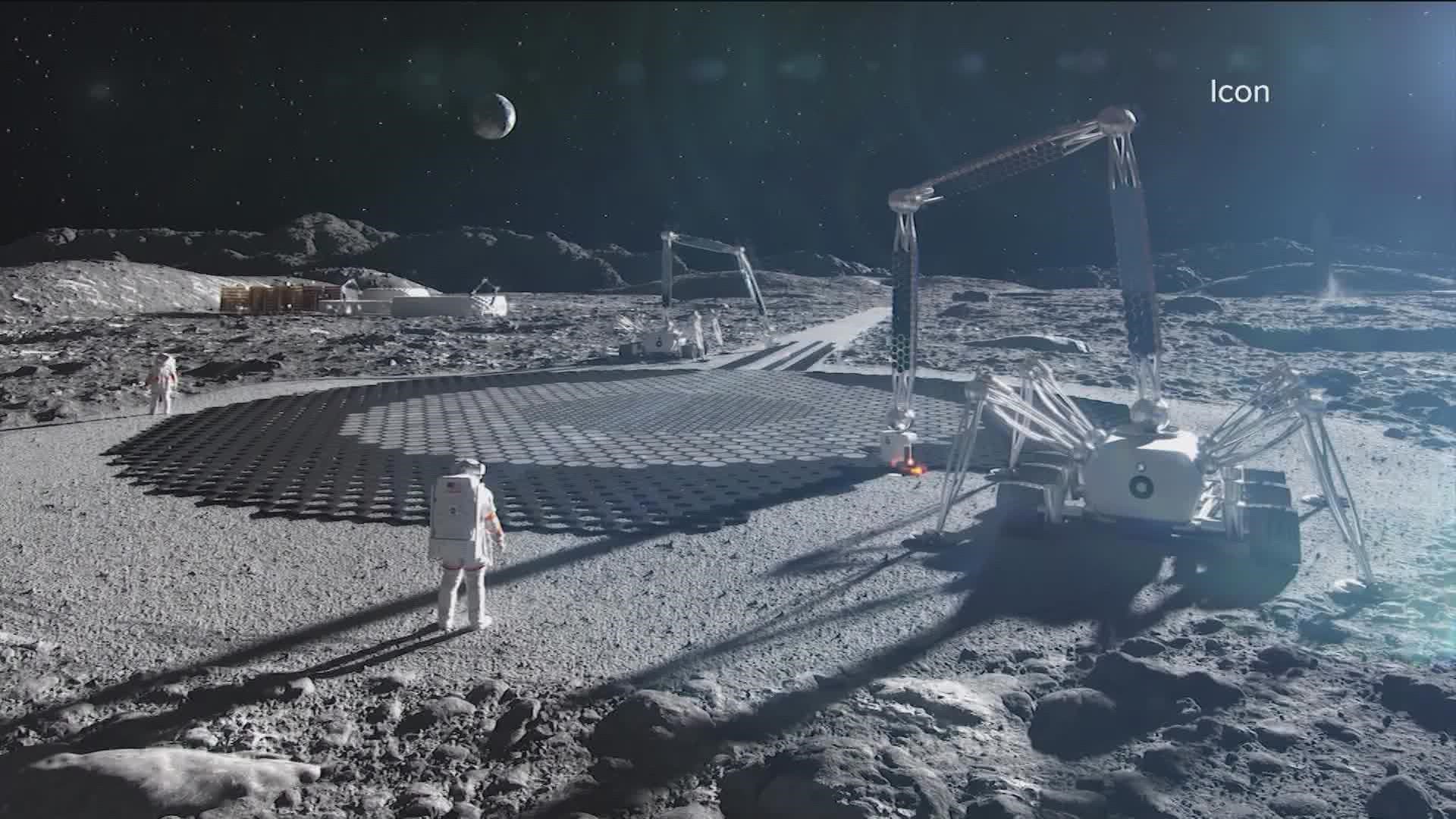AUSTIN, Texas — The Austin-based homebuilder ICON is making one small step for man and one giant leap for mankind by signing a $57 million contract with NASA to build on the moon.
In a release from ICON, the 3D-home builder will soon venture into a new frontier of space dimensions. The news comes four days after a fire that consumed a large portion of their headquarters in South Austin, but didn't have a "meaningful impact" to their overall business activities according to the builders.
The contract, announced on Nov. 29, was awarded to the company under NASA's Phase III Small Business Innovation Research (SBIR) program. This program allows ICON to use the $57 million award to build their Olympus system, which adds to previous construction done by both NASA and the Department of Defense for exploration of the moon and beyond.
"ICON’s Olympus system is intended to be a multi-purpose construction system primarily using local lunar and Martian resources as building materials to further the efforts of NASA as well as commercial organizations to establish a sustained lunar presence," the release stated.
The project will work in conjunction with NASA's Artemis program, which launched its first rocket in 50 years on Nov. 15. ICON will work with the program to:
- Use lunar regolith samples brought back from Apollo missions, in addition to other regolith simulants, to see their mechanical behavior in lunar gravity
- Bring advanced hardware and software into space through a lunar gravity simulation flight
- Create results to inform future lunar construction approaches for the space community
- Establish critical infrastructure necessary for a sustainable lunar economy and habitation
“The final deliverable of this contract will be humanity’s first construction on another world, and that is going to be a pretty special achievement," said Jason Ballard, ICON co-founder and CEO.
Also through the Artemis program, NASA is planning the first off-Earth site for sustainable surface exploration on the moon. To create that site, robust infrastructure that provides thermal, radiation and micrometeorite protection is required.
"In order to explore other worlds, we need innovative new technologies adapted to those environments and our exploration needs," explained Niki Werkheiser, director of technology maturation at NASA's Space Technology Mission Directorate.
ICON plans to implement a "live off the land" approach, which prioritizes using the native materials found on the moon to create a livable and sustainable civilization.
In addition to the grant announced on Tuesday, ICON was awarded a subcontract in 2021 to support NASA's Space Technology Mission Directorate to create the world's first, and only, simulated 3D-printed Mars surface habitat. Called Mars Dune Alpha, it is located at NASA's Johnson Space Center and is assisting in long-duration science missions.
"It's a construction system we call Olympus system that will allow us to use the local materials of the moon to build all the elements of infrastructure necessary for a lunar outpost and ultimately a moon base ... launch and landing pads, roadways, habitats, you name it, all the things on the moon," said Ballard.
He added that they hope to start building on the moon by 2026, starting with a launch and landing pad.
Unlike their 3D-printed homes, Ballard said they will not be using a water-based concrete.
"Using a high-powered laser to actually transform moon dust into building material, but we have done some experiments with microwave, infrared and outright melting. The mission presently funded, contemplated in the contract, is a laser-powered system," said Ballard.
ICON will be working on the large-scale design and development for the system that will go to the moon. It will be tested for things like how to deal with the lower gravity. The goal is to transport the 3D printer in a spacecraft.
Ballard said he is excited about the work and hopes to build on the moon in the future.
"Sort of an optimistic endeavor to advance the situation of our species in the universe," he said. "In the short term, I think humanity needs better ways to be built. One day we will be building the first thing ever built by our species on an another world right here from Austin, Texas."
Boomtown is KVUE's series covering the explosive growth in Central Texas. For more Boomtown stories, head to KVUE.com/Boomtown.

